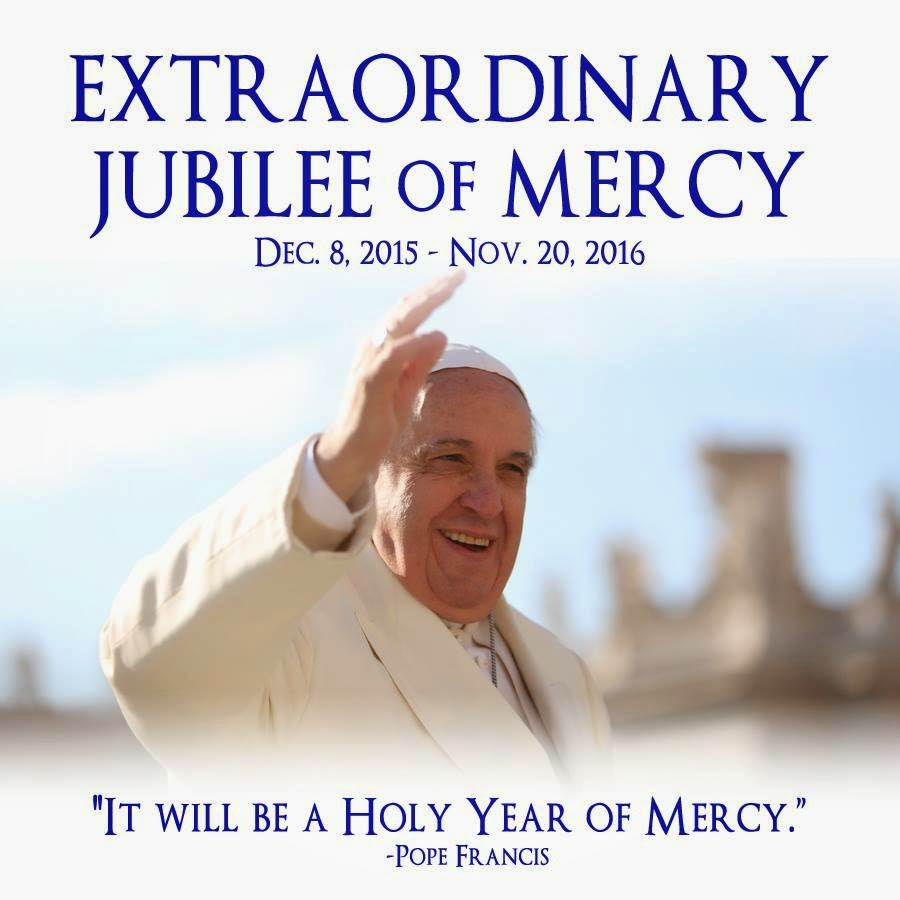This Sunday we talk about the second coming of Jesus. In November we think about the last things. That is heaven, hell, death and judgement. In advent we think about waiting for the coming of Jesus. So the two connect well with one Sunday to contempalte the second coming.
Really the coming of Jesus that matters most is when Jesus comes to us. When we encounter Him in our heart and allow Him to love us. Jesus approaches us in both ways. He comes as God in the form of a simple carpenter and even a baby. Yet He also comes to us as the King of Kings. We need to encounter Him both ways but often one comes first and the other lags behind a bit.
This week's gospel contains some real apocalyptic language. The signs of the end times. There has been a ton of effort put into trying to figure out exactly what is going to happen by analysing these passages. It is probably the least useful area of biblical interpretation. I know when I was a teen I read a book by Hal Lindsey called "The Late, Great Planet Earth." It argued that a significant war was going to begin in 1984. Russia was going to invade the Middle East. Europe and China were going to get involved. This guy had it all figured out. Needless to say 1984 came and went and no such war took place.
So if we are not supposed to figure out exactly what these prophecies mean then why are they there? Why does the church ask us to contemplate them this Sunday? We are supposed to learn some thing. One is that God's plan is going to involve a lot of sin and suffering. There will be days when it feels like evil has won. Can God's plan really involve wars and famines and persecutions and apostasies? God answers that question for us. It can and it does.
That is important because many suggest than an all-knowing, all-good and all-powerful God would prevent disasters from happening. It can be helpful and interesting to think about that argument and figure out why it fails. Yet it is important to note that God never makes that claim. He never says He won't tolerate the existence of any evil, any where. He says the opposite. That the forces of evil will be allowed to run their course. That when we do good many times we will feel like we are all alone. That it will take faith to believe God is in charge.
We can actually get great comfort from this. Why is that? The real problem of evil is not out in the world. The real problem of evil is in our hearts. We look at our lives and think an all-knowing, all-powerful, all-good God would not want anything to do with us. We want to be good but sometimes it seems that goodness is swimming upstream against a very negative tide. Yet if the world is an evil place and God still wants to save it then maybe we can also believe that this same God would want to save a guy like me. If the world's salvation takes a long time and has a lot of setbacks then we should not be discouraged if our own salvation takes time and includes many embarrassing episodes.
This is why it is fitting that the Year of Mercy that Pope Francis declared would start this advent. Ultimately it is all about Mercy. Judgement is there to show us the need for mercy. Jesus' birth show us how much He is willing to lower Himself to offer us mercy. God's willingness to tolerate centuries of evil and love us through it all despite the fact that many philosophers say it is illogical. That shows us just how awesome God's mercy is.
Ultimately any encounter between us and God needs to involve extraordinary mercy. There is just no other way it can happen. The gap between us and God is just so great. Christmas is a time to marvel at God's amazing willingness to bridge that gap by becoming man. Yet His goal is not just to be on the same planet with you. His goal is intimacy. He wants to enter your heart and transform you. Astounding.
Only in truth does charity shine forth, only in truth can charity be authentically lived. Truth is the light that gives meaning and value to charity...Without truth, charity degenerates into sentimentality. Love becomes an empty shell, to be filled in an arbitrary way. Pope Benedict XVI
Sunday, November 29, 2015
Saturday, November 28, 2015
Aquinas
I am reading Ed Feser's Aquinas book. It is interesting. It gets very involved and deep into abstract thinking. What strikes me about it that is where Catholicism goes. He makes assumptions. He argues for them so they are not strictly assumptions but it is well known that many modern thinkers simply don't accept his argument. Yet it typically seems that Catholics should accept them.
For example, the idea that the intellect is immaterial. That it exists apart from the body. Now I know that it is trendy to deny this. Modern science has shown some strong connections between what physically happens in the brain and our consciousness. People have have put 2 and 2 together and gotten 473. That is they have boldly claimed that this proves the entire human person can be reduced to a series of chemical reactions. It does not prove that but it does make it more plausible to believe that. Yet as Catholics we don't believe that. We believe the dead continue to have intellect, emotion and will even apart from their bodies. That is why we pray to saints.
Anyway, what you see in Aquinas is so different from what you see in the modern mind. Modern philosophy is dominated by scepticism. Scepticism is very good at tearing down and destroying ideas. It is not very good at building up anything that would lead to morality or meaning. We deal with it all the time. It is just very strange to read somebody who actually builds up something positive and dares to go deep and follow things to their logical conclusions.
I am reminded that Bl. John Henry Newman said that only Catholicism and Atheism stand up to scrutiny. Really I am thinking he should have said only Catholicism and nihilism because most atheists don't follow their reasoning to its hard conclusions. Catholicism comes to some pretty hard conclusions as well. Are we willing to go there?
It makes me wonder because the battle lines in debates is very much between moderate scepticism and extreme scepticism. Mostly you run into atheists who claim they can be good while denying the very existence of goodness. Then you run into liberal Christians who are not that different. Very few defend traditional protestantism any more. There are many that believe it but not many that defend it. What it means is that when you encounter people where they are at your mind is often far from the real depth and beauty of the Catholic faith.
I often find myself arguing that something, somewhere somehow has some meaning. What Catholicism really says is everything means everything. That is that everything that exists is kept in existence every moment by God. That means that everything that exists has the potential to connect us with God. It is such an awesome thought. Wrestling with it is such a different experience.
You wonder where we should spend our time. Should we be out on the street meeting people where they are at like Pope Francis says or should we be unveiling Catholicism in all its depth and beauty like Pope Benedict did.
For example, the idea that the intellect is immaterial. That it exists apart from the body. Now I know that it is trendy to deny this. Modern science has shown some strong connections between what physically happens in the brain and our consciousness. People have have put 2 and 2 together and gotten 473. That is they have boldly claimed that this proves the entire human person can be reduced to a series of chemical reactions. It does not prove that but it does make it more plausible to believe that. Yet as Catholics we don't believe that. We believe the dead continue to have intellect, emotion and will even apart from their bodies. That is why we pray to saints.
Anyway, what you see in Aquinas is so different from what you see in the modern mind. Modern philosophy is dominated by scepticism. Scepticism is very good at tearing down and destroying ideas. It is not very good at building up anything that would lead to morality or meaning. We deal with it all the time. It is just very strange to read somebody who actually builds up something positive and dares to go deep and follow things to their logical conclusions.
I am reminded that Bl. John Henry Newman said that only Catholicism and Atheism stand up to scrutiny. Really I am thinking he should have said only Catholicism and nihilism because most atheists don't follow their reasoning to its hard conclusions. Catholicism comes to some pretty hard conclusions as well. Are we willing to go there?
It makes me wonder because the battle lines in debates is very much between moderate scepticism and extreme scepticism. Mostly you run into atheists who claim they can be good while denying the very existence of goodness. Then you run into liberal Christians who are not that different. Very few defend traditional protestantism any more. There are many that believe it but not many that defend it. What it means is that when you encounter people where they are at your mind is often far from the real depth and beauty of the Catholic faith.
I often find myself arguing that something, somewhere somehow has some meaning. What Catholicism really says is everything means everything. That is that everything that exists is kept in existence every moment by God. That means that everything that exists has the potential to connect us with God. It is such an awesome thought. Wrestling with it is such a different experience.
You wonder where we should spend our time. Should we be out on the street meeting people where they are at like Pope Francis says or should we be unveiling Catholicism in all its depth and beauty like Pope Benedict did.
Subscribe to:
Posts (Atom)


